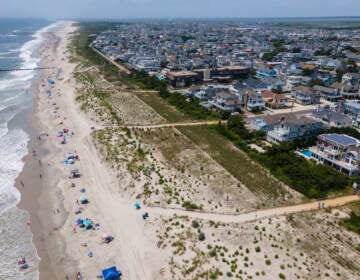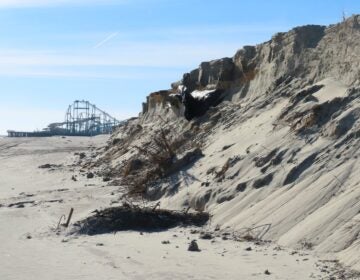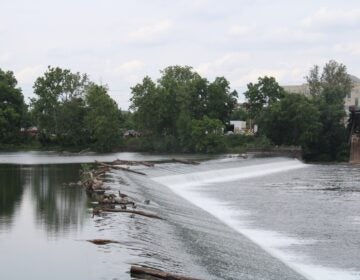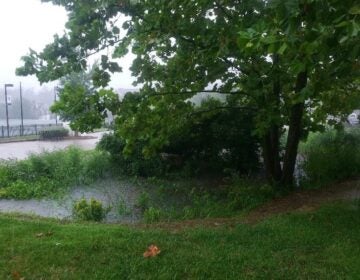Water quality at Jersey beaches ‘excellent,’ officials say. But prepare for extreme heat
New Jersey is warming faster than any other state in the Northeast, officials say.
Listen 1:12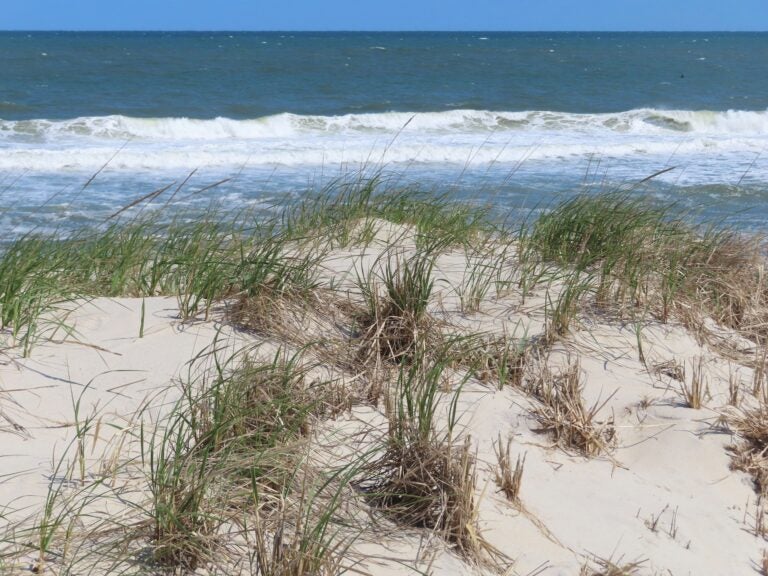
The ocean horizon is clear on Thursday, April 25, 2024, in Long Beach Township, N.J. (AP Photo/Wayne Parry)
This story is part of the WHYY News Climate Desk, bringing you news and solutions for our changing region.
From the Poconos to the Jersey Shore to the mouth of the Delaware Bay, what do you want to know about climate change? What would you like us to cover? Get in touch.
Heading into the long Memorial Day weekend, which marks the unofficial start of summer, New Jersey’s environmental officials had some good news for beachgoers.
“Our water quality along our coastal communities is excellent and ready for our visitors,” said New Jersey Commissioner of Environmental Protection Shawn LaTourette.
LaTourette spoke at the release of the annual “State of the Shore” report in Asbury Park Thursday after an early morning observational flight along the coast. DEP officials began testing water at the state’s ocean beaches, lakes and rivers in mid-May and will continue to do so until mid-September.
But LaTourette also raised warnings about the impact of climate change on public health.
“As we head out to enjoy our beaches or our lakefronts and our rivers, it’s important to remember that last year was the hottest year on record,” LaTourette said. “And we expect more extreme heat to exacerbate health conditions.”
LaTourette said the state is working on an extreme heat action plan as climate change is bringing more flooding and high temperatures to the Garden State. Hurricane season is also expected to break records this year.
New Jersey is warming faster than any other state in the Northeast, according to scientists with the New Jersey Sea Grant Consortium, a collaboration of academic institutions and organizations that research and monitor the marine environment. New Jersey Sea Grant Consortium publishes the annual report.
High temperatures and humidity can sneak up quickly and cause dehydration, heat exhaustion and heatstroke. Symptoms to watch out for include headache, dizziness, nausea, heavy sweating, confusion, weakness and lack of consciousness.
New Jersey established two websites devoted to providing resources for extreme heat — heathub.nj and chillout.nj, which map out cooling centers across the state.
Swimmers and fishers can also check water quality updates for specific locations at njbeaches.org.
The report said while winter storms caused flooding, they did not cause erosion at many beaches. But even moderate storms that occur during high tides can cause devastating floods, said Jon Miller, coastal processes specialist with N.J. Sea Grant and a professor at Stevens Institute of Technology.
“It was a pretty bad winter in terms of the flooding,” Miller said.
Sand bars, produced by winter storms, can cause dangerous rip tides, as well.
Miller also spoke about NOAA’s hurricane predictions for this season, which are supposed to break records with an estimated 17–25 named storms. The average is 14. The state uses the Tropical Meteorology Project at Colorado State University as a guide, which this year puts the probability of a hurricane impacting New Jersey, or coming within 50 miles of the coastline, at 11%. The project puts the probability of a major hurricane hitting the state at 1%.
“These percentages may seem low but it’s important to keep in mind it only takes one storm to create dramatic impacts,” Miller said.
WHYY is your source for fact-based, in-depth journalism and information. As a nonprofit organization, we rely on financial support from readers like you. Please give today.



